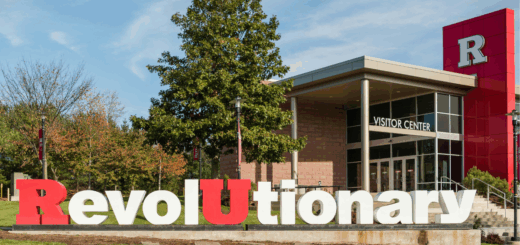Discover Business Schools with High Acceptance Rates

When it comes to pursuing higher education in the field of business, choosing the right business school can have a significant impact on your future career prospects. Business schools offer various programs, with MBA (Master of Business Administration) being one of the most sought-after degrees. An MBA can open doors to lucrative job opportunities, enhance leadership skills, and expand professional networks. However, the getting “in” rate is daunting. According to an HBR article, MBA schools’ rejection rates swing between 80-95 percent, quite disheartening.
However, understanding the landscape of business schools and MBA programs is crucial for making informed decisions about your education and career. This article will delve into the factors to consider when choosing a business school, the significance of acceptance rates, and a comprehensive list of top business schools with high acceptance rates.
Types of Business Schools and Programs
Business schools vary in academic offerings, faculty expertise, campus culture, and alumni network. When evaluating potential business schools, it’s essential to consider factors such as program accreditation, faculty credentials, career placement services, and overall reputation.
Accreditation from recognized bodies such as AACSB (Association to Advance Collegiate Schools of Business) or AMBA (Association of MBAs) signifies the school’s commitment to quality education and adherence to industry standards. Additionally, researching the faculty profiles, including their industry experience and academic qualifications, can provide insights into the learning environment and the potential for mentorship.
Another critical aspect to consider is the school’s connections with the business community. Strong industry partnerships, guest lectures from prominent business leaders, and internship opportunities can enrich the educational experience and provide valuable real-world exposure.
Evaluating the school’s alumni network and their professional accomplishments can also shed light on the post-graduation prospects and the strength of the school’s career support services. Apart from the old fashion way, online opportunities like Opting in to GMAC™ GradSelect and The MBA Tour™ can greatly open doors for new graduates.
Understanding Business School Acceptance Rates
Acceptance rates play a pivotal role in the business school application process. These rates indicate the percentage of applicants who are admitted to a particular business school or MBA program.
Understanding acceptance rates can help prospective students gauge their chances of acceptance, set realistic expectations, and strategize their application approach. Generally, lower acceptance rates signify higher competition and selectivity, while higher acceptance rates may indicate a more accessible entry for qualified candidates
It’s important to note that acceptance rates can vary significantly among different business schools and MBA programs. For example, the top 10 business schools in the whole of the U.S. have an average acceptance rate of 18 percent only. However, don’t be discouraged. Factors such as the school’s reputation, program competitiveness, applicant pool, and available seats contribute to the diversity of acceptance rates across institutions.
Additionally, certain programs within a business school, such as specialized MBA tracks or executive education programs, may have distinct acceptance rates based on their unique criteria and target audience.
@drakepooley Let me know what questions you all have except dont make me going to business school my personality plz #stanford #harvard #columbia #wharton #booth #kellogg #mit ♬ Chill Vibes – Tollan Kim
Top Business Schools with High Acceptance Rates
In the pursuit of identifying the best business schools with high acceptance rates, several institutions stand out for their commitment to accessibility and academic excellence. These schools prioritize creating diverse learning environments and providing opportunities for a wide range of qualified candidates to pursue their business education.
The following list highlights some of the top business schools known for their high acceptance rates and exceptional MBA programs:
- The University of North Carolina at Chapel Hill – Kenan-Flagler Business School acceptance rate 44%
- Vanderbilt University – Owen Graduate School of Management acceptance rate 44%
- Carnegie Mellon University – Tepper School of Business acceptance rate 42%
- Cornell University – Samuel Curtis Johnson Graduate School of Management acceptance rate 40%
- University of Minnesota – Curtis L. Carlson School of Management acceptance rate 37%
- University of Washington – Michael G. Foster School of Business acceptance rate 35%
- Indiana University—Bloomington Kelley School of Business acceptance rate 31%
- University of Virginia – Darden Graduate School of Business acceptance rate 30%
- University of California—Los Angeles – UCLA Anderson School of Management acceptance rate 30%
- The University of Texas at Austin – McCombs School of Business acceptance rate 30%
Easiest MBA Programs to Get Into
While the concept of “easiest” MBA programs may vary based on individual qualifications and preferences, certain programs are renowned for their inclusive admission policies and supportive learning environments. These programs prioritize holistic candidate evaluation, emphasize potential over traditional metrics, and offer comprehensive resources to help students thrive in their business endeavors.
Exploring the easiest MBA programs to get into can provide valuable insights for aspiring business professionals seeking a nurturing academic journey.
- Appalachian State University Walker College of Business – acceptance rate 94%
- Louisiana State University – E. J. Ourso College of Business – acceptance rate 92%
- The University of Iowa Tippie School of Business – acceptance rate 89%
- Tulane University Freeman School of Business – acceptance rate 85%
- The University of Kentucky Gatton School of Business – acceptance rate 85%
- University of Oklahoma Price School of Business – acceptance rate 81%
- University of Nebraska—Lincoln – College of Business acceptance rate 78%
- University of Michigan–Ann Arbor Stephen M. Ross School of Business acceptance rate 74%
- Rice University – Jesse H. Jones Graduate School of Business – acceptance rate 69% (online)
- The University of Kansas School of Business – acceptance rate 68%
Undergraduate Business School Acceptance Rates
In addition to MBA programs, undergraduate business schools play a crucial role in shaping the future business leaders of tomorrow. Aspiring undergraduate students interested in pursuing business degrees often seek institutions with favorable acceptance rates and comprehensive academic offerings.
Understanding the acceptance rates of undergraduate business schools can aid in making informed decisions about higher education and aligning academic aspirations with realistic admission prospects.
- Temple University – The Fox School of Business and Management – acceptance rate 80%
- University of Missouri—Kansas City – Henry W. Bloch School of Business and Public Administration – acceptance rate 60%
- Arizona State University – W. P. Carey School of Business – acceptance rate 59%
- Georgetown University – McDonough School of Business – acceptance rate 57%
- Northern Arizona University Franke College of Business – acceptance rate 50%
- University of Notre Dame – Mendoza College of Business – acceptance rate 46%
- Southern Methodist University – Cox School of Business – acceptance rate 39%
- The University of Texas at Dallas – Naveen Jindal School of Management – acceptance rate 37%
- Michigan State University – The Eli Broad Graduate School of Management – acceptance rate 36%
- University of Massachusetts Amherst – Isenberg School of Management – acceptance rate 32%
Tips for Applying to Business Schools with High Acceptance Rates
Navigating the application process for business schools with high acceptance rates requires strategic planning, compelling application materials, and a thorough understanding of the school’s values and offerings. Implementing effective strategies and showcasing your unique qualifications can enhance your chances of securing admission to a business school with a favorable acceptance rate. The following tips offer actionable insights for aspiring business school candidates seeking to maximize their application success:
Research Each School’s Values and Specializations
Understanding the unique strengths and values of the business schools you’re applying to can help you tailor your application materials to align with the institution’s ethos. Highlighting your alignment with the school’s mission, academic specializations, and extracurricular offerings can demonstrate your genuine interest and fit within the school’s community.
Where to find:
Business school websites
Colleagues and alumni networks
Online resources like US News and Princeton Review
Craft Compelling Personal Statements and Essays
Personal statements and essays provide opportunities to showcase your personality, motivations, and aspirations. Utilize these components of the application to convey your passion for business, your relevant experiences, and the impact you envision making in the field. Tailoring each essay to reflect your genuine voice and connection to the school can make your application stand out.
Resources to help:
Leverage Professional Recommendations and Experiences
Strong letters of recommendation from professionals who can attest to your abilities and potential can significantly strengthen your application. Additionally, highlighting relevant work experiences, internships, or leadership roles can demonstrate your practical acumen and readiness for the academic and professional challenges offered by the business school.
Where to get:
Internship experience
Pro bono and freelance work
Community charity work
Engage with the School’s Community and Resources
Demonstrating proactive engagement with the school’s community, such as attending informational sessions, virtual events, or networking with current students and alumni, can convey your genuine interest in becoming a part of the academic environment. Utilize the resources offered by the school, such as application workshops or admissions counseling, to gain valuable insights and support throughout the application process.
Where to start:
Workshops and seminars
Student government body
Teacher assistant experience
Final Thoughts
In the dynamic landscape of business education, the quest for the best business schools with high acceptance rates involves a thoughtful exploration of academic offerings, institutional values, and personal aspirations. By understanding the significance of acceptance rates, evaluating the factors that contribute to a school’s appeal, and implementing strategic application approaches, aspiring business professionals can position themselves for success in their educational and career endeavors.
Whether pursuing undergraduate business degrees or embarking on the transformative journey of an MBA, leveraging the insights and opportunities offered by business schools with high acceptance rates can pave the way for a rewarding and impactful educational experience. As you navigate your business education, consider the unique strengths and contributions you can bring to the vibrant communities of these institutions, and embrace the opportunities that align with your aspirations and potential.
By leveraging the resources, support, and inclusive environments provided by these business schools with high acceptance rates, you can chart a fulfilling and purpose-driven path toward your academic and career aspirations.
More Business Schools in the US
Accounting Schools in Maryland with High Acceptance Rate
Top Sports Management Schools In Ohio With High Acceptance Rate
Best Accounting Schools in Michigan with High Acceptance Rates
Sports Management Career Advancement with these Strategies for Success



